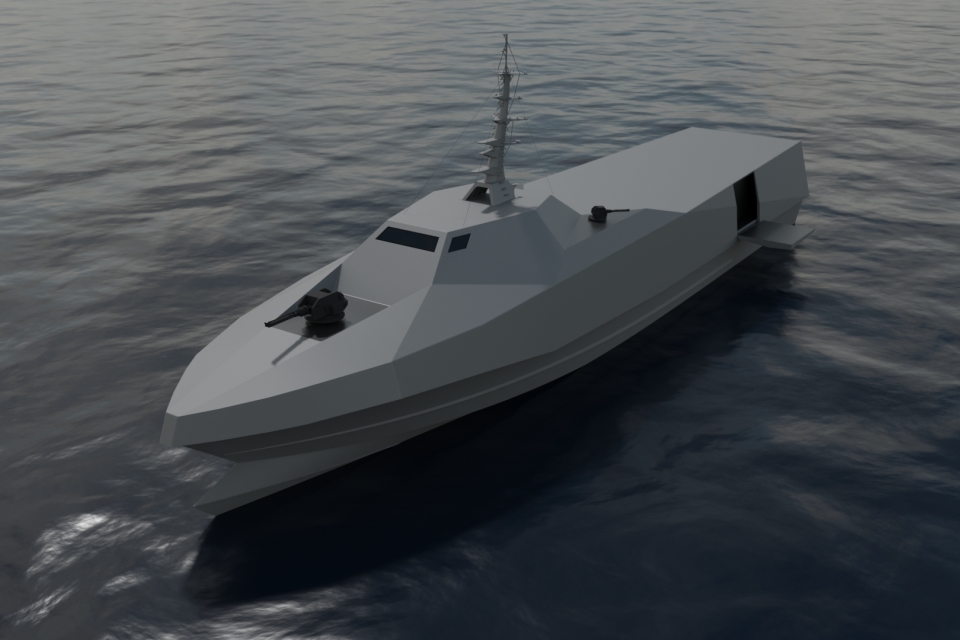The EUROGUARD project, funded by the European Defence Fund (EDF), has officially commenced in Estonia. The primary objective is to develop a modular and semi-autonomous surface vessel platform equipped with a remote control system to strengthen sea defense capabilities across Europe.
The project involves a collaboration between 23 enterprises and the cooperation of ten EU member states (France, Spain, the Netherlands, Italy, Norway, Denmark, Belgium, Sweden, Spain and Estonia). The consortium is coordinated by the Estonian shipbuilding company Baltic Workboats. The kick-off involved workshops in Tallinn and a shipyard visit to Nasva, Saaremaa.
The project total budget amounts to EUR 95 million, with EUR 65 million from the European Commission and EUR 30 million from participating countries and companies themselves.
‘The participation in the project and leadership of the consortium is both a great honour as well as a huge responsibility that allows Baltic Workboats to demonstrate its cutting edge technology and competence as a shipbuilder as well as to learn new technologies,’ says Margus Vanaselja, CEO of Baltic Workboats.
Also read: Damen Shipyards to spearhead EU defence development project
Modular prototype
The specific capabilities of the prototype will be determined through multi-year research and development activities, but in general, the vessel should be capable of autonomous navigation, obstacle and threat detection, collision avoidance, and other mission-specific tasks. The prototype must adhere to the principle of modularity, allowing it to be assembled according to specific needs or tasks.
Innovation is also expected in the propulsion system, with environmental sustainability being an important keyword.
Baltic Workboats is responsible for constructing the test vessel, all the work will take place in Nasva factory, Saaremaa. The prototype’s sea trials will also be conducted in Estonian waters in collaboration with the Estonian Navy. The prototype is to be finished and tested by the end of 2027.
Also read: European naval shipbuilding in search of synergy
EUROGUARD
EUROGUARD will combine state-of-the-art and innovative technologies to study, design, prototype and test a first-of-its-kind versatile medium-sized semi-autonomous surface naval vessel.
Francisco Casalduero, Programme Manager at the European Commission’s Directorate General for Defence Industry and Space: ‘The EDF funded four-year project EUROGUARD is a major step forward in EU cross-border cooperation at both industrial and governmental levels in the naval sector. EUROGUARD reinforces the European Defence Industrial and Technological Base, and fosters greater, and concrete defence cooperation while providing EU navies with a multipurpose and cost-effective capability for littoral operational environments.’
The EUROGUARD consortium comprises the following organisations:
- Baltic Workboats AS (Coordinator)
- Aircraft Development and Systems Engineering (ADSE) BV
- Akademia Marynarki Wojennej (eng. Polish Naval Academy)
- Damen Schelde Naval Shipbuilding BV
- dotOcean NV
- ELETTRONICA SPA
- Fincantieri
- Kongsberg Maritime
- Leonard
- Marduk Technologies
- Naval Group Belgium
- Naval Group SA
- Navantia S.A., S.M.E.
- Netherlands Organisation for Applied Scientific Research (TNO)
- Odense Maritime Technology
- Osrodek Badawczo-Rozwojowy Centrum Techniki Morskiej S.A
- RHEA System BV
- Safran Electronics & Defense
- SH Defence
- SSPA Sweden AB
- Maritime Research Institute Netherlands (MARIN)
- Technische Universiteit Delft
- Thales DMS France SAS
The European Defence Fund aims to strengthen the European defence industry and promote research and development in the field. The fund supports the development of innovative projects and the creation of unified defence capabilities across the EU.
Picture: Impression of the semi-autonomous surface naval vessel (by Baltic Workboats).
Also read: Dutch Defence buys ships and other equipment to protect North Sea








